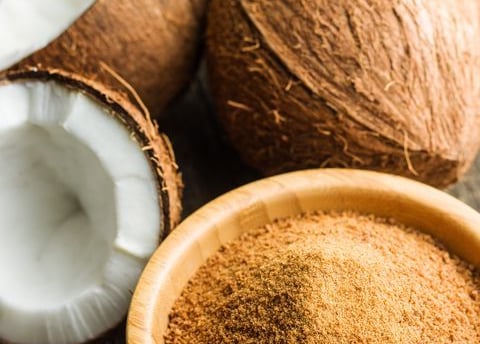Health Benefits of Coconut Sugar: A Natural Sweetener
Coconut sugar, derived from the sap of the coconut palm tree, is gaining popularity as a natural and healthier alternative to traditional sweeteners. With its rich flavor, nutritional benefits, and lower glycemic index, coconut sugar offers several health advantages that make it a preferred choice for those seeking a more wholesome sweetening option.


Coconut sugar, derived from the sap of the coconut palm tree, is gaining popularity as a natural and healthier alternative to traditional sweeteners. With its rich flavor, nutritional benefits, and lower glycemic index, coconut sugar offers several health advantages that make it a preferred choice for those seeking a more wholesome sweetening option.
Nutritional Content
Coconut sugar is more than just a sweetener; it is packed with essential nutrients that contribute to overall health. Unlike refined white sugar, which offers empty calories, coconut sugar retains many of the nutrients found in the coconut sap, including:
Iron: Important for the production of red blood cells and the prevention of anemia.
Zinc: Supports immune function and wound healing.
Calcium: Essential for strong bones and teeth.
Potassium: Helps regulate fluid balance, muscle contractions, and nerve signals.
Antioxidants: Protect the body from oxidative stress and inflammation.
Lower Glycemic Index
One of the most significant health benefits of coconut sugar is its low glycemic index (GI). The GI measures how quickly a food raises blood sugar levels. Foods with a high GI cause rapid spikes in blood sugar, leading to energy crashes and increased hunger. Coconut sugar, with a GI of around 35, is much lower than that of regular table sugar (GI of 65-70). This means that coconut sugar releases glucose more slowly and steadily, helping to maintain stable blood sugar levels.
Health Comparisons
Compared to other sweeteners, coconut sugar offers several advantages:
Vs. White Sugar: While white sugar is highly processed and stripped of nutrients, coconut sugar retains its natural vitamins and minerals.
Vs. High-Fructose Corn Syrup (HFCS): HFCS is linked to obesity and metabolic diseases, whereas coconut sugar provides a more natural and nutrient-rich alternative.
Vs. Artificial Sweeteners: Many artificial sweeteners have been associated with negative health effects and may disrupt gut bacteria. Coconut sugar, being a natural product, does not pose such risks.
Natural Sweetener
Coconut sugar is minimally processed, making it a more natural choice compared to refined sugars and artificial sweeteners. The process involves collecting the sap from the flower buds of the coconut palm, heating it to evaporate the moisture, and then cooling it to form granules. This minimal processing ensures that the natural nutrients and flavors are preserved.
Usage in Diets
Incorporating coconut sugar into your diet can be easy and beneficial. Here are some ways to use coconut sugar:
Baking: Substitute coconut sugar for white or brown sugar in baking recipes. It adds a rich, caramel-like flavor to cookies, cakes, and muffins.
Cooking: Use coconut sugar in savory dishes to balance flavors. It works well in marinades, sauces, and glazes.
Beverages: Sweeten your coffee, tea, or smoothies with coconut sugar for a delicious and natural taste.
Conclusion
Coconut sugar stands out as a healthier and more sustainable sweetening option. Its rich nutritional profile, lower glycemic index, and natural production process make it an excellent choice for those looking to reduce their reliance on refined sugars and artificial sweeteners. By incorporating coconut sugar into your diet, you can enjoy its health benefits while indulging in its delightful sweetness.
